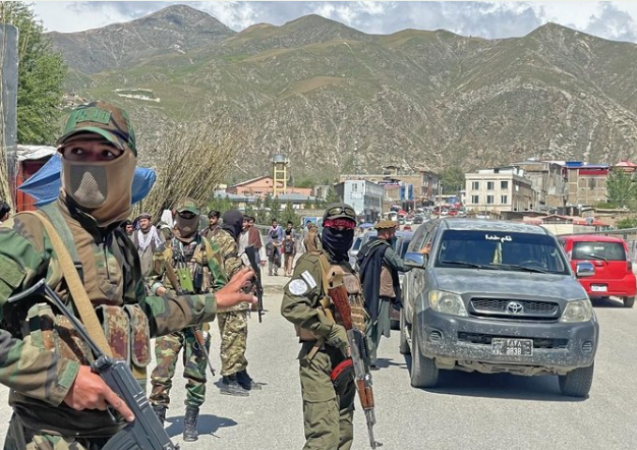
Karuizawa: The "immediate reversal" of a Taliban government ban on Afghan women working for non-governmental organisations and the United Nations in Afghanistan was demanded by G7 foreign ministers on Tuesday.
Since assuming power in 2021, Taliban authorities have put a variety of restrictions on Afghan women, including prohibiting them from many government jobs and higher education.
They outlawed women working for both domestic and international non-governmental organisations in December. The curb was extended to UN offices across the nation on April 4, which caused outrage around the world.
Also Read: Ship inspections for the Black Sea grain deal have resumed in Ukraine.
After two days of talks in Japan, the top G7 diplomats issued a statement calling for the immediate overturning of all unacceptable decisions that limit human rights and fundamental freedoms, including the most recent prohibitions against Afghan women working for NGOs and the UN.
Additionally, the group denounced the Taliban government's "systematic abuses of women's and girls' human rights and discrimination against members of religious and ethnic minorities."
Zabihullah Mujahid, a spokesman for the Taliban government, rejected the G7 call in a statement to AFP. Foreign nations shouldn't meddle in Afghanistan's internal affairs, he said.
The principles and laws being upheld or implemented in Afghanistan are only relevant to Afghans and have no bearing on other nations.
Mujahid hinted at diplomatic engagement that most nations cut off when the Taliban overthrew a US-backed government when he said that foreign nations "should study and accurately monitor the situation in Afghanistan" by engaging with Kabul.
Also Read: Kim Jong Un: North Korea is prepared to launch its first spy satellite.
He suggested that they get in touch with us before making a decision.
Prior to the Muslim holiday of Eid Al-Fitr, Hibatullah Akhundzada, the Taliban's supreme leader, also urged the international community to stay out of Afghanistan's internal affairs in a statement.
According to Akhundzada, Afghanistan desires good relations with its neighbours, other Islamic nations, and the rest of the world that are based on reciprocal advantages and adhere to Islamic principles.
"Afghanistan insists that other nations should not meddle in our internal affairs and that it does not wish to meddle in the internal affairs of other nations."
The UN has claimed that because Afghan women are not permitted to serve in its mission, it is forced to make a "appalling choice" regarding whether to continue conducting operations there.
It claims that because it is "illegal under international law, including the UN Charter," it cannot abide by the ban.
All of the UN's Afghan employees, both men and women, have been told over the past two weeks not to report to work until further notice.
The majority of the 600 women working for the UN in the nation are local employees. The 3,900-person UN staff in Afghanistan includes about 3,300 Afghans in total.
According to UN officials, the restriction will also hinder the organization's efforts to raise money at a time when Afghanistan is going through one of the worst humanitarian crises in history.
Between December 2021 and January 2023, the UN airlifted $1.8 billion into Afghanistan, providing a vital aid lifeline for the country's 38 million residents and bolstering the domestic economy.
Also Read: Joe Biden's popularity rating declines due to economic worries
Other restrictions on Afghan women implemented since 2021 include banning teenage girls from secondary school, forcing them out of many government jobs, forbidding them from travelling alone, and ordering them to cover up outside the home—ideally with a burqa.
Additionally, women are not permitted in parks, gyms, public baths, or universities.